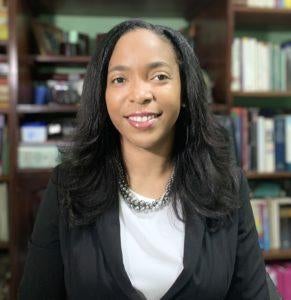
1. Gail, you have a very interesting professional journey. You are a physician who joined the Jamaican military. Tell me how you came to be both a doctor and a Major in the army?
It’s kind of a funny story. I was an active Rotarian and a resident in the Accident and Emergency Department at the University Hospital of the West Indies. A physician colleague of mine, who was also a Rotarian asked me to assist with the clinics at the Jamaica Defence Force. I did this as a civilian for approximately six (6) months and was fascinated by the level of discipline and respect the soldiers displayed. My colleague then appealed for me to apply for the position of a military physician and I was very hesitant, as that entailed military training. Even though I had a reasonable level of fitness, I grew accustomed to having my hair and nails done and wearing pretty clothes and shoes. This role would be life-changing and it would take me out of my comfort zone. There would be no technical change, as I would still practice medicine as I do at the hospital. This change was an adaptive change – an opportunity for a new career where I could carve out a niche for myself and effect meaningful change in a special population. I then decided to take my first “leap of faith” and enlisted. I spent twelve wonderful years in the Regular Force (Active Duty) and I am now a Reserve Medical Officer. I am still proud of myself for surviving military training. Military training is not about physical stamina, it is all about your mindset. Having a growth mindset, getting rid of mind traps that feed on insecurities – keeping your eyes on the prize.
2. What inspired you to pursue a Doctorate in Public Health? And why the program at Harvard Chan?
In 2010, during my first year as a military officer, our country received news of a devastating earthquake in Haiti. Our military was deployed to Port au Prince to assist with the relief efforts. While there, our team conducted a number of outreach activities to underserved communities – rendering medical care, distributing food and other relief supplies. I also experienced first-hand the work involved in planning and coordinating these activities, such as sitting in on UNOCHA meetings, meeting with partner militaries, community leaders, and other humanitarian agencies. What struck me the most was the suboptimal state of the health infrastructure, systems, and leadership, in addition to the level of poverty and inequalities in healthcare faced by the citizens of Haiti. I was also intrigued by the underlying causes of the magnitude of this disaster. One of the main underlying issues was the lack of policies that enforced compliance with standard building codes. I was also intrigued by the evolution of the face of the disaster – from acute injuries with a high need for surgical intervention to public health needs. I thought to myself, “which medical discipline best aligns with the work that I am doing?” Public Health of course!
In my search for the right program to complete my terminal degree in Public Health, I was very fascinated by the program at Harvard Chan as it was unique from the others. This program emphasized leadership development, change management and included a strong practice-based component where candidates have the opportunity to work with organizations in the field making a tremendous impact. There was also the opportunity to cross-register for courses offered by other Harvard schools to shape a unique experience for students. Having sacrificed a scholarship opportunity at another University, I don’t regret it for one minute!
3. You worked with the PAHO office in Kingston for your Summer Field Immersion. Why PAHO? Tell me about the project you worked on.
I worked with PAHO in my military capacity on a number of projects and was always impressed by the level of leadership displayed by their officers in executing various projects and initiatives. I also admired their culture of ensuring continuous professional development for their staff and partners they work with. I also wanted to do some work on an issue that I started working on during my time in the military and that I was passionate about – the International Health Regulations (IHR). The added benefit was that I had the opportunity to serve my country at the same time, as there is a lot to be accomplished in the field of public health security. I assisted my mentor, Dr. Marion Bullock Ducasse in conducting a joint assessment of our Points of Entry with the Ministry of Health.
4. What is the biggest lesson learned about leadership thus far?
The biggest and most valuable lesson I learned working on this project is the need for us as public health leaders to be cognizant of and recognize the differences between technical and adaptive challenges when we engage and work with our stakeholders. The value of the iterative process of “getting on that balcony” to absorb and appreciate a holistic view of situations cannot be overstated. Getting on that balcony affords you the opportunity of absorbing that inspirational “breath of fresh air” to guide your strategy, or as I would say in the military, “your line of effort” towards your objective.
5. What do you hope to do with your DrPH?
It is my dream to do some more work on Public Health Security and Disaster Resilience in the Caribbean. The Caribbean is vulnerable to natural disasters, particularly hurricanes, and continues to threaten our health systems and economic development. The COVID-19 pandemic has also exposed a number of critical vulnerabilities to our national security and health systems. I believe there are significant opportunities to learn and build from these experiences, namely advocating for more integration of the two sectors to strengthen public health security and build resilience.



